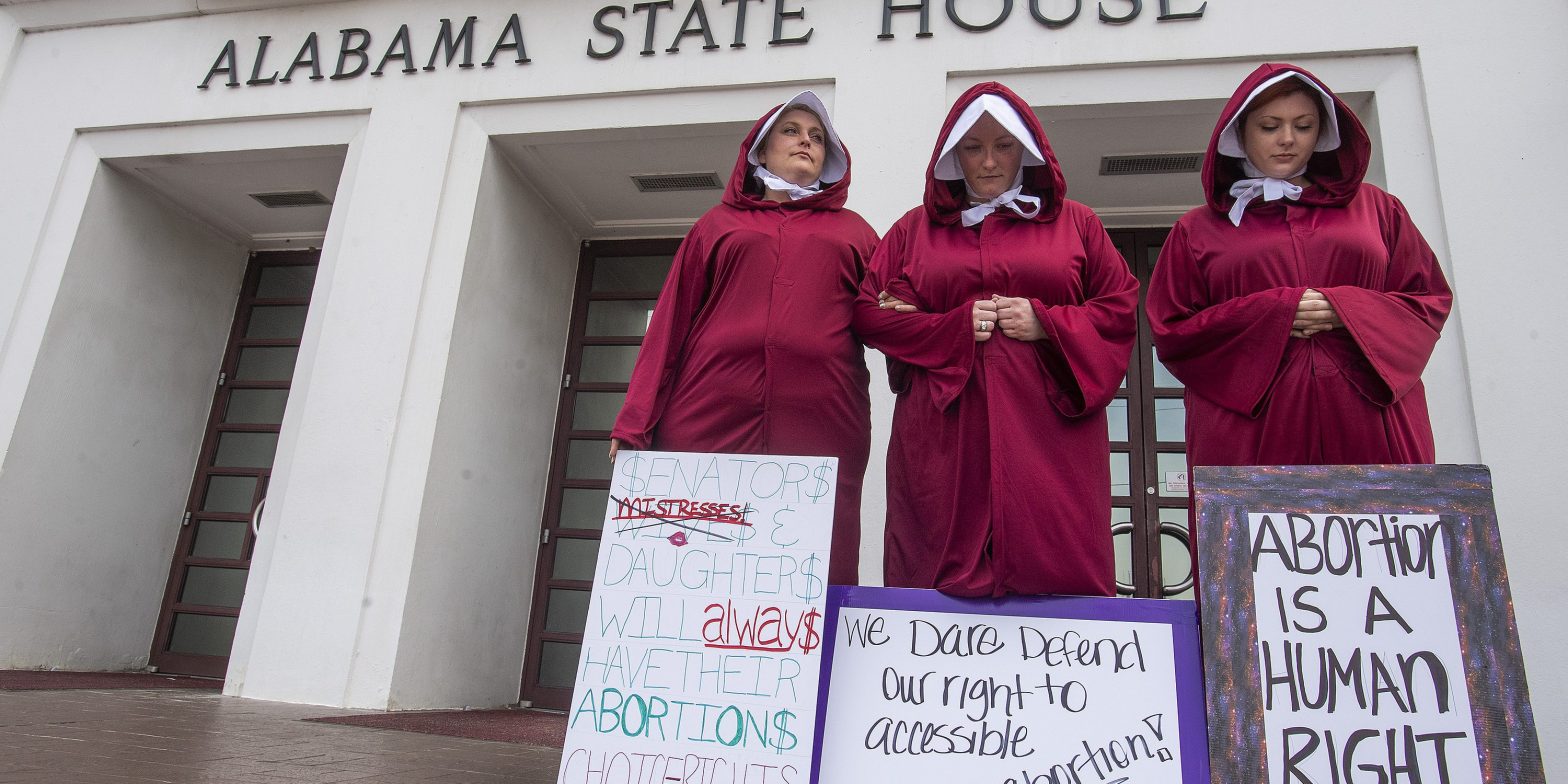On May 14, speaking to the 35-member Alabama Senate—31 of whom are men and 28 of whom are Republican—Senator Linda Coleman-Madison of the 20th District of Alabama declared, “The sin to me is bringing a child into this world and not taking care of them.”
Coleman-Madison was debating HB 314, which was soon to become the nation’s most restrictive abortion law, banning abortion at every stage of pregnancy without exceptions for rape and incest, and punishing abortion providers with up to 99 years of sentencing (even though rape is punishable in Alabama for only 20 years). Coleman-Madison had proposed an amendment that would have required Alabama to provide prenatal care and medical care for both women who could not obtain abortions under HB 314, and for their children. The amendment failed by a vote of 23-6, the bill passed 25-6, and by the next day, Governor Kay Ivey signed the bill into law, celebrating the legislation as a “powerful testament to Alabamians’ deeply held belief that every life is precious, that every life is a sacred gift from God.”
As Alabama lawmakers’ decisive rejection of Coleman-Madison’s amendment demonstrates so clearly and depressingly, Alabama is anything but pro-life. One in four children in Alabama grow up in poverty, but Alabama fails to provide supplementary funding for federal school lunch programs. Despite having some of the nation’s highest infant mortality rates and lowest rates of life expectancy at birth, the Alabama legislature has refused to expand Medicaid. And because the sanctity of life is ever-so-important to Alabama lawmakers, Alabama has the proud distinction of leading the nation in sentencing of prisoners to death per capita.
Alongside Alabama, eight other states have passed abortion restrictions this year, including so-called “heartbeat bills” in states including Georgia, Kentucky, Louisiana, Missouri, Mississippi, and Ohio that ban abortion as early as six weeks into a pregnancy—18 weeks before the point of viability established under Roe v. Wade and Planned Parenthood v. Casey, and typically long before a woman even knows she is pregnant. (All of these new laws have yet to go into effect, but they are slated to take effect as early as July 11 in Ohio.)
These dramatic restrictions on abortion represent a shift in legal strategies by the pro-life movement, which had previously relied on more incremental abortion restrictions like mandated waiting periods and hospital admitting privileges for abortion providers, says Supreme Court expert and lecturer at Yale Law School, Linda Greenhouse to The Politic. But emboldened by a conservative majority on Supreme Court—courtesy of beer-guzzling Brett Kavanaugh’s confirmation to the court in October 2018—pro-life activists have seized their opportunity to overturn the constitutional right to an abortion established under Roe v. Wade with a slew of laws openly defying Roe’s mandates.
According to Greenhouse, while the practice of bringing test cases before the Supreme Court is not unusual, the passage of these abortion restrictions as tests to Roe are unprecedented. Unlike other legal tests, these laws are “stripping people of their constitutional rights rather than trying to create a new constitutional right,” said Greenhouse.
While pro-life activists are hoping these laws will become test cases against Roe v. Wade, most legal analysts, Greenhouse included, predict that the Supreme Court will not overturn Roe anytime soon, given its political controversy. The recent state restrictions are drawing fiery political debates across the nation: liberal-leaning states are considering laws that strengthen abortion rights, while Republicans are split on Alabama’s and Louisiana’s refusals to make exceptions for rape and incest. Greenhouse argues that the Supreme Court justices will not want to take on such a political hot potato, especially before the 2020 presidential elections, so the lower courts will “most likely” strike down these laws in the meantime.
But President Donald Trump has appointed a record number of federal judges, which means appellate courts occupied by more conservative-leaning judges may rule in favor of these state restrictions, even if lower courts reject the laws. If the Supreme Court remains silent, these laws would be upheld, putting the lives and wellbeing of countless women at risk. And if the Supreme Court decides to address Roe, Greenhouse says there is a “certain” possibility of Roe being overturned—or at least dying a “death by a thousand cuts,” in the words of legal analyst Mary Ziegler. Alabama’s law is extreme to the point of absurdity, but it is not unthinkable that the Supreme Court could give license to the heartbeat bills proliferating across the United States by shifting the point of viability under Roe, proscribing abortion without explicitly overturning Roe.
If the pro-life movement needs any reminder of how little they support life, we only need to look at other nations that have deprived women of the right to an abortion. In Argentina, where abortion is illegal save for instances of rape and maternal health, Argentinian officials denied an abortion to an 11 year old girl who was raped by her grandmother’s boyfriend, all to the rallying cries of pro-life activists. She has attempted suicide; the baby is not expected to survive.
To support life is not merely to support the beating of a heart. To support life is to support living with agency, autonomy, and dignity; living free from poverty and sickness; living without being forced to face painful memories of trauma and suffering on the daily. As for Kay Ivey and the rest of the politicians and zealots playing political games with the lives of women across America, I am not going to mince my words: Take a long look in the mirror, see the blood you have washed your hands in, and ask yourselves how much you really care about life.

